GENERAL SITUATION IN MEXICO

Weekly Review I November 6, 2024



Weekly Review I November 6, 2024


LATAM Airlines has finalized a purchase agreement for 10 Boeing 787 Dreamliners, with options for five more, as part of its strategy to modernize its fleet and strengthen its position as the largest operator of 787s in Latin America. By 2030, LATAM plans to increase its fleet to 52 Dreamliners, which will enhance capacity on existing routes and introduce new services, including a direct flight to Sydney. The 787s are known for their fuel efficiency, offering a 25% reduction in fuel consumption and emissions compared to older aircraft. This acquisition will be complemented by the arrival of A321XLRs in 2026, which will serve shorter routes, allowing the 787s to focus on longer distances. Since 2011, the 787 has helped launch over 400 new nonstop routes and reduced carbon emissions by over 173 billion pounds.
SOURCE: MEXICO BUSINESS NEWS
San Luis Potosí is set for significant economic growth with five Chinese companies planning to invest in the state, creating over 12,000 new jobs. Governor Ricardo Gallardo Cardona, alongside Chinese Ambassador Zhang Run, announced the initiative after discussions with local business leaders. The companies, primarily from the automotive, manufacturing, and energy sectors, will expand the state’s existing automotive cluster, which already includes over 260 companies. Gallardo emphasized the state’s strategic location, strong industrial base, and access to North American markets under the USMCA, making it an attractive investment hub. Ambassador Zhang’s positive assessment of the state’s infrastructure further bolstered its appeal as a manufacturing and export center. This partnership is expected to foster future projects and create high-quality, well-paid jobs for local residents.
SOURCE: MEXICO BUSINESS NEWS
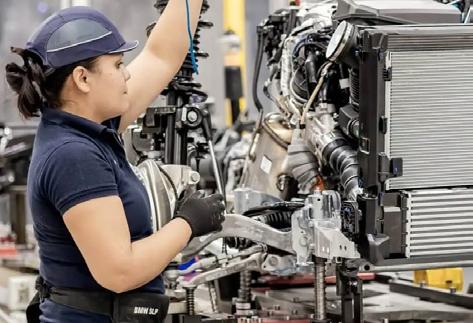


Marco Estudillo Bernal, president of the Ensenada Business Coordinating Council (CCEE), emphasized at a CCEE meeting the importance of promoting a binational agenda between Ensenada and California, focused on concrete results. He proposed driving a legislative agenda that involves all of Baja California and highlighted Ensenada’s strengths, such as its local talent, nearshoring potential, port, and expanding tourism sector. He also urged the development of strategic projects, such as improving the port and airport, and seeking active collaboration with Californian leaders and legislators. Estudillo noted that Ensenada can benefit from strategic alliances in technology, tourism, and agriculture, leveraging its proximity to the Californian market and projects like “Silicon Border” in Mexicali. Additionally, he suggested replicating events such as the International Forum “Interconnecting Smart Cities” to strengthen synergies in areas such as urban mobility and sustainability.
SOURCE: INDUSTRIAL NEWS BC
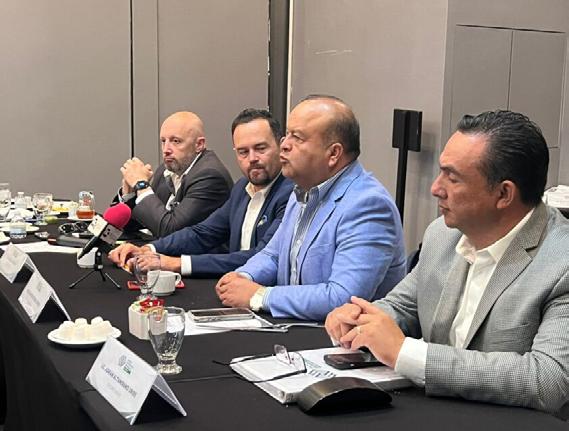



Governor Maru Campos’s recent tour of Taiwan strengthened Chihuahua’s position as a key location on the “Semiconductor Route,” connecting Arizona and Texas. Accompanied by a business delegation from Ciudad Juarez, Campos promoted the state’s competitive edge for semiconductor investment, sparking interest among Asian corporations. Highlighting Chihuahua’s leadership in electronic exports (37% of Mexico’s total), Campos met with executives from major companies like United Microelectronics Corporation and members of the Taiwan Semiconductor Industry Association. She emphasized Chihuahua’s legal stability, workforce development, and infrastructure as attractive factors. Key achievements included an agreement to train Chihuahua university graduates in Taiwan, a development agreement with Foxconn for the Anapra area, training plans with Pegatron for over 100 employees, and a proposal for a new tech campus with five buildings and a hotel along the border.
SOURCE: MEXICO NOW


Nuevo León Governor Samuel García
Sepúlveda announced the resignation of the state’s Secretary of Economy, Iván Rivas Rodríguez, and appointed Emmanuel Loo, the former Deputy Secretary of Investment, as interim head. During his third annual report and on social media, García praised Rivas’s achievements in making Nuevo León a leader in business creation, employment, foreign direct investment (FDI), and innovation over the past three years. The governor highlighted that, with a new customs facility, roads, and $68 billion in announced investments, Nuevo León has become a model for Latin America. Rivas noted his efforts in attracting high-tech and sustainable businesses, which resulted in over $68 billion in FDI and the creation of 220,000 jobs, as well as providing over $12 billion pesos in credit to 3,500 SMEs.
Grateful for the experience, Rivas reflected on his three years focused on attracting investment, training SMEs, and regulatory improvement.
SOURCE: EL ECONOMISTA
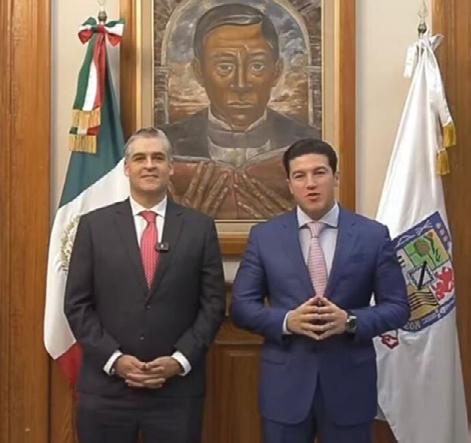


Construction of the Amistad Industrial Park in Monclova is tentatively scheduled to begin in March 2025, according to Mayor Mario Alberto Dávila Delgado. The mayor expressed his enthusiasm for this 150-hectare development, which aims to strengthen the economy of Monclova and the surrounding region. Several industrial buildings are expected to be completed by December 2025. This private-sector project seeks to attract national and international companies, with support from local and state governments, to provide high-quality employment opportunities for residents. Dávila emphasized that the park will help diversify Monclova’s economy, which has been impacted by the
steel industry crisis. The project includes significant investments in infrastructure, roads, and essential services to facilitate the arrival of new businesses, particularly in the technology and manufacturing sectors. The mayor also highlighted the importance of state and federal government support to meet project timelines. The city administration believes that the Amistad Industrial Park will drive Monclova’s economic growth and support the region’s recovery from recent challenges, including the economic downturn at Altos Hornos de México and workforce fluctuations in local automotive suppliers like Nemak and Aptiv.
SOURCE: EL SIGLO DE TORREON
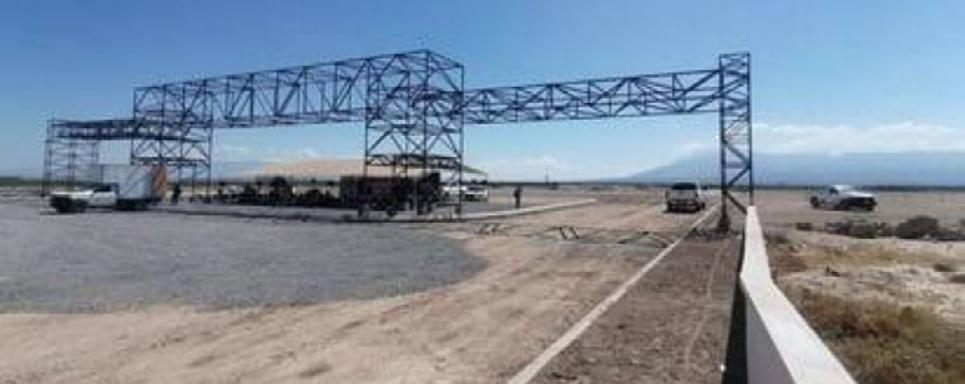


Canada has become Querétaro’s second-largest trading partner for 2024, as highlighted during the sixth Canadian Manufacturing Day organized by the Canadian Chamber of Commerce in Mexico (CANCHAM). Marco Antonio Del Prete Tercero, head of the Secretariat of Sustainable Development (SEDEDU), reported a nearly 20% rise in Canadian foreign direct investment (FDI) in Querétaro, with the Bajío region attracting $1.58 billion in total FDI this year. A panel discussion emphasized the region’s advantages for Canadian investment, while CANCHAM’s president, Luis Noriega, noted that 250 Canadian companies now operate in the Bajío, contributing significantly to Mexico’s manufacturing sector.
SOURCE: MEXICO INDUSTRY
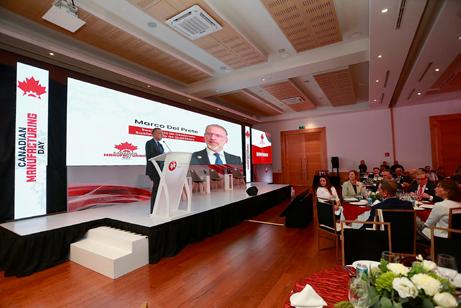

A delegation from Aguascalientes, led by Esaú Garza de Vega, Secretary of Economic Development, Science, and Technology, embarked on a trade mission in South Korea to present investment opportunities in nearshoring to over 20 Korean business leaders. Garza de Vega highlighted Aguascalientes’s appeal for Korean companies due to its developed infrastructure, economic stability, and technological development capacity. Key advantages include strong logistics infrastructure, government support for foreign investment, and a collaborative environment with academic institutions that fosters innovation. A business seminar organized by the Aguascalientes government and the Mexican Embassy in Korea showcased the state’s strategic location, secure business environment, and specialized supplier network. The mission also involves meetings in energy and advanced technology sectors, aiming to attract high-value investments and technology transfer to boost local industry.
SOURCE: MEXICO INDUSTRY


Mexico City leads in Foreign Direct Investment (FDI) within Mexico’s real estate sector, attracting over $12 billion USD in the first quarter of 2024. The capital has seen a consistent 8% annual growth rate in FDI since 2015, outpacing other states. Contributing factors include economic stability and the development of affordable, well-connected housing, boosting both residential and commercial infrastructure projects. The Mexico City Metropolitan Area (ZMCDMX) reports historic demand in the industrial sector, with gross absorption reaching 1.2 million m², a 55% increase from the same period in 2023. Vacancy rates are low at 2.3%, reflecting strong demand and high levels of pre-leased projects, particularly in the Cuautitlán and Tultitlán corridors. Market expansion is expected to continue in coming years, adding new developments and enhancing urban connectivity and livability.
SOURCE: FUNDS SOCIETY


The government of Delfina Gómez Álvarez in the State of Mexico has issued 187 State Impact Evaluations through the Commission of State Impact (Coime), facilitating over 33 billion pesos in investments. This initiative aims to streamline the approval process for high-impact projects across sectors like construction, housing, logistics, and hydrocarbons, which are expected to generate more than 98,000 potential jobs. Carlos Maza Lara, head of the Secretariat for Urban Development and Infrastructure (Sedui), emphasized that these evaluations enable investments in optimal and sustainable urban environments, fostering prosperity in local communities. The success is attributed to coordinated efforts among various state agencies that provide technical assessments in urban planning, civil protection, environmental concerns, water management, and mobility. Investors can access support for obtaining State Impact Evaluations through the Investor Service Center in Metepec, with consultations available via the Coime website.
SOURCE: DIARIO PORTAL
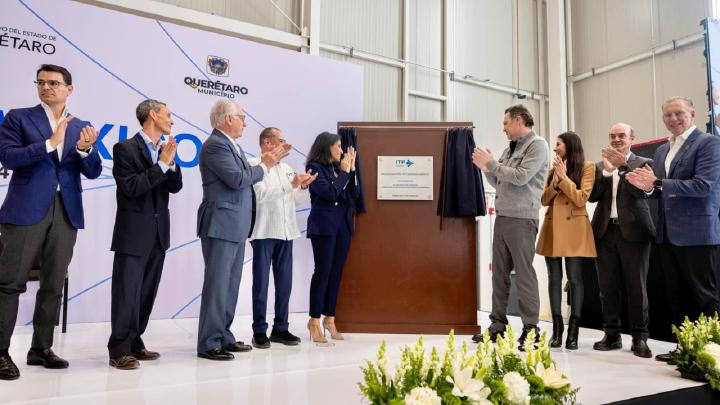
The Spanish aerospace company, invested 29 million dollars to expand its facilities in Querétaro. This project will create 250 jobs over the next three years.
Mercado Libre opens two new Distribution Centers in Villa de Tezontepec, Hidalgo, and Tultepec, Estado de México, with an investment amounting to 300 million dollars, which will be distributed for the next 2 years.
The Mexican company specialized in digital solutions, announced a new investment of 100 million dollars over the next three years, aimed at expanding its data center located in Metepec, Estado de México.
The company Flex announced an investment of 86 million dollars for 2025, which will allocated to expanding its operations in Jalisco and will create 2,000 new jobs.
SOURCE: MEXICO INDUSTRY, EL ECONOMISTA
• INITIATIVE ADDING ARTICLES 132 OF THE FEDERAL LABOR LAW AND 43 OF THE FEDERAL LAW FOR STATE WORKERS IN THE AREA OF MENTAL HEALTH AND WELL-BEING
Purpose: This initiative mandates that employers promote and implement measures to identify, analyze, and prevent psychosocial risk factors, with the goal of ensuring the mental and emotional well-being of employees.
Presented by: Dip. Naty Poob Pijy Jiménez Vásquez (Oax - MORENA)
Status: Published in the Parliamentary Gazette

• PROPOSAL FOR A CONSTITUTIONAL REFORM TO ESTABLISH A HOUSING SYSTEM FOR WORKERS
Purpose: The initiative proposes a reform to Article 123 of the Mexican Constitution to obligate companies in all sectors to contribute to a national housing fund, enabling workers to access affordable housing. The fund will provide workers with low-cost loans for housing acquisition or improvement, and opportunities for social leasing. Monthly rent for social leasing will not exceed 30% of the worker’s salary, with priority given to long-term contributors without property.
Presented by: Joint Committees of Constitutional Points; Urban Reorganization and Housing; Legislative Studies
Status: Published in the Parliamentary Gazette.

POLITICAL
• PROPOSAL TO AMEND ARTICLES 16, 18, AND 19 OF THE MEXICAN CONSTITUTION TO ELIMINATE PREVENTIVE DETENTION AND CUSTODIAL HOLDING
The proposal seeks to remove preventive detention and custodial holding. Instead, justified preventive detention would only apply for serious offenses when other measures are inadequate to ensure trial attendance or protect victims and witnesses. For organized crime, specific measures may apply under judicial discretion.
Presented by: Sen. José Clemente Castañeda Hoeflich (LNal - MC)
Status: Published in the Parliamentary Gazette.
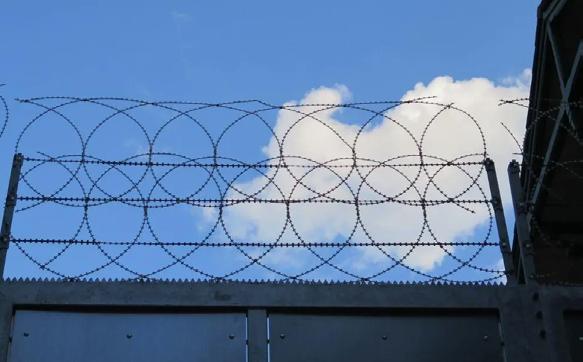
• PROPOSAL TO AMEND ARTICLES 105 AND 107 OF THE MEXICAN CONSTITUTION ON THE IRREVOCABILITY OF CONSTITUTIONAL AMENDMENTS
Purpose: The proposal amends Articles 105 and 107 of the Mexican Constitution to declare constitutional challenges and amparo actions against constitutional amendments inadmissible. Ongoing cases will be resolved in line with the new decree provisions.
Presented by: Constitutional Points Committee
Status: Passed
• PROPOSAL TO AMEND THE AMPARO LAW TO PROTECT SOCIAL AND PUBLIC ORDER INTERESTS IN FINANCIAL SUSPENSION CASES
Purpose: The initiative seeks to add provisions to Article 129 of the Amparo Law, stating that suspension of certain financial operations will be denied if it undermines social or public order. Specifically, the suspension would not apply when the Ministry of Finance or judicial authority halts financial activities for reasons of public interest. Exceptions include access to funds for worker salaries, court-ordered alimony, and essential living expenses until the amparo case concludes.
Presented by: Sen. Javier Corral Jurado (LNalMORENA)
Status: Published in the Parliamentary Gazette.
• AGREEMENT ON FISCAL INCENTIVES FOR THE NORTHERN BORDER REGION
Purpose: The proposal urges President Claudia Sheinbaum Pardo and the Secretary of Finance to renew or issue a new decree on fiscal incentives for the northern border region with a minimum duration of six years. It aims to maintain the benefits of the December 31, 2018 decree to support investment, competitiveness, and job creation in the area. Presented by: Dip. César Israel Damián Retes (Plur - PAN)
Status: Published in the Parliamentary Gazette
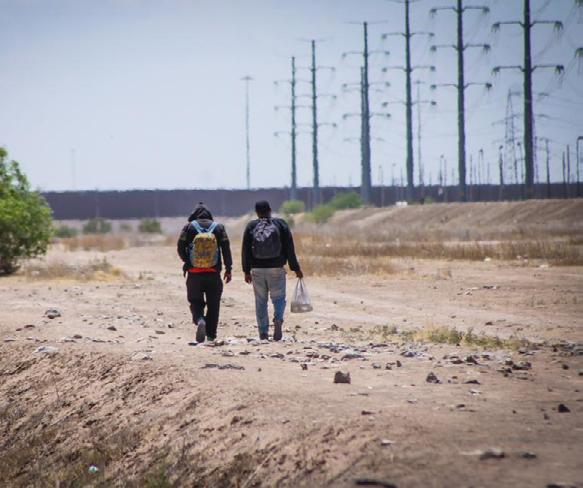
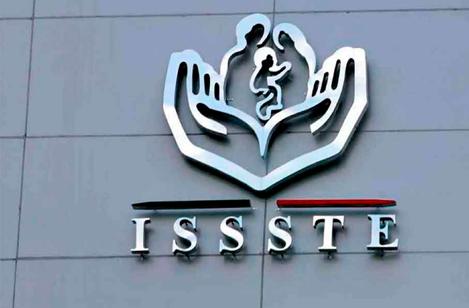
• PROPOSAL TO AMEND LABOR AND SOCIAL SECURITY LAWS TO SUPPORT WORKERS WITH CHRONIC ILLNESSES
Purpose: The initiative proposes changes to the Federal Labor Law, Social Security Law, and ISSSTE Law to aid workers with chronic illnesses. It mandates that employers provide support for work leaves issued by ISSSTE, allowing these leaves to last from one to twenty-eight days. Workers may receive as many leaves as needed, up to a maximum of 364 non-consecutive days over a three-year period.
Presented by: Sen. Ruth Miriam González Silva (SLP - PVEM)
Status: Published in the Parliamentary Gazette.

NEW E-BOOK: THE ULTIMATE SITE SELECTION GUIDE
Mexico has established itself as a global manufacturing powerhouse, offering strategic advantages like proximity to the U.S., cost-effective labor, and a skilled workforce. From the bustling Northern Border Region to the industrial Central Bajío, each region in Mexico brings unique benefits for different industries—from automotive and electronics to aerospace and consumer goods. In this latest blog, we dive into when and why companies should consider Mexico for manufacturing, key locations for setting up operations, and critical factors like cost analysis, regulatory compliance, and infrastructure. Download our Site Selection e-book for a detailed look at each region and start planning your entry into Mexico’s thriving manufacturing landscape.
Mexico’s recent time zone reforms reflect its commitment to enhancing trade, tourism, and productivity by aligning more closely with key international markets. Divided into four main time zones—Northwest, Pacific, Central, and Southeast— Mexico’s approach to daylight saving time varies by region, particularly along the U.S. border where some municipalities observe seasonal time adjustments to facilitate cross-border trade. This blog post explores the implications of these time zone changes for companies doing business in Mexico, with insights on how to optimize scheduling and operational efficiency.
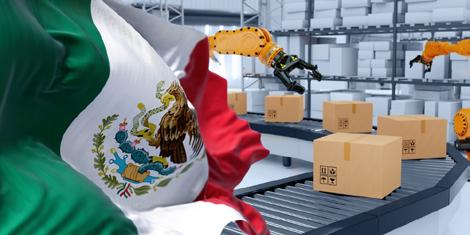
VISIT THE INSIGHTS SECTION ON OUR WEBSITE TO SEE SOME HIGHLIGHTED SUCCESS CASES.